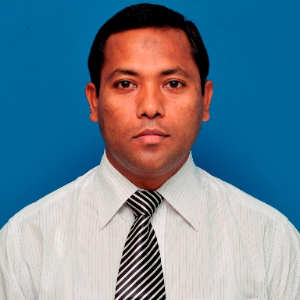Title : Exploration of indigenous and underutilized crops species for the mitigation of climate change effects on food security and sustainability
Abstract:
The biggest challenge of the present time is the global climate change which is clearly having a severe adverse effect on the entire environment including nature; from where it is not possible to get rid of immediately. This change did not happen overnight but gradually over many years and this variable is now obvious. As we have modernized everything, we have done such an intolerable cruelty to nature that we are paying the terrible price now. We have also been very successful in terms of the maximum yields for majorities of our commonly cultivated crops. But unfortunately, in doing this we have narrowed down the broad genetic base to organize objective oriented some limited traits into our commonly cultivated crop plants destroying their wider adaptability. So that our well-known and widely produced crop plants are showing serious vulnerability to adapt to this changing climatic condition (high temperature, low temperature, drought, flooding, salinity etc.). Now we can understand so clearly and a specific solution has to be made dealing with a sustainable manner. We know that weedy type plants are naturally very strong in particular and can grow very naturally even in very adverse environments (including various biotic and abiotic stresses) which is very surprising that our regular crops are not. Many of us know that people in remote areas of different countries have been using many indigenous and underutilized plants, especially weeds for a long time as their daily food and medicine. Though many of which have already been researched and found very fruitful results but from the huge germplasms hardly accumulated a minimum and solely it is not possible for us to collect data of all those used plants from people in remote areas. So now it is the time to think about and we need to undertake a common project globally and find some plants that are not affected by cold or heat that are climate independent more clearly, I can say “global plants”. For example; Dandelion (Taraxacum officinale), Chickweed (Stellaria media), wild Brassica (Brassica species), Wood sorrel (Oxalis spp.), Nettle (Urtica urens), Purslane (Portulaca oleracea), wild Amaranth (Amaranthus spp.), Centella (Centella asiatica), wild pepper (Piper sarmentosum), Alligator weed (Alternanthera philoxeroides), Water Spinach (Enydra fluctuans), Brazilian spinach (Alternanthera sissoo) and many more these can be used as an alternative source of nutritious food crops as well as medicinal. In this regard we need to form a global research team where the researchers throughout the world will be connected in a common platform. They will go to very rural and remote areas, collect data and at the same time build up a germplasm center in the particular areas and the most climate smart plants will be selected to facilitate potential research with utmost importance sending those germplasms to every corner of the world. So that we can take the immediate necessary initiatives to increase their production, processing, marketing, commercialization and distribution as quickly as possible to the most vulnerable areas first then others to ensure food security and sustainability.



